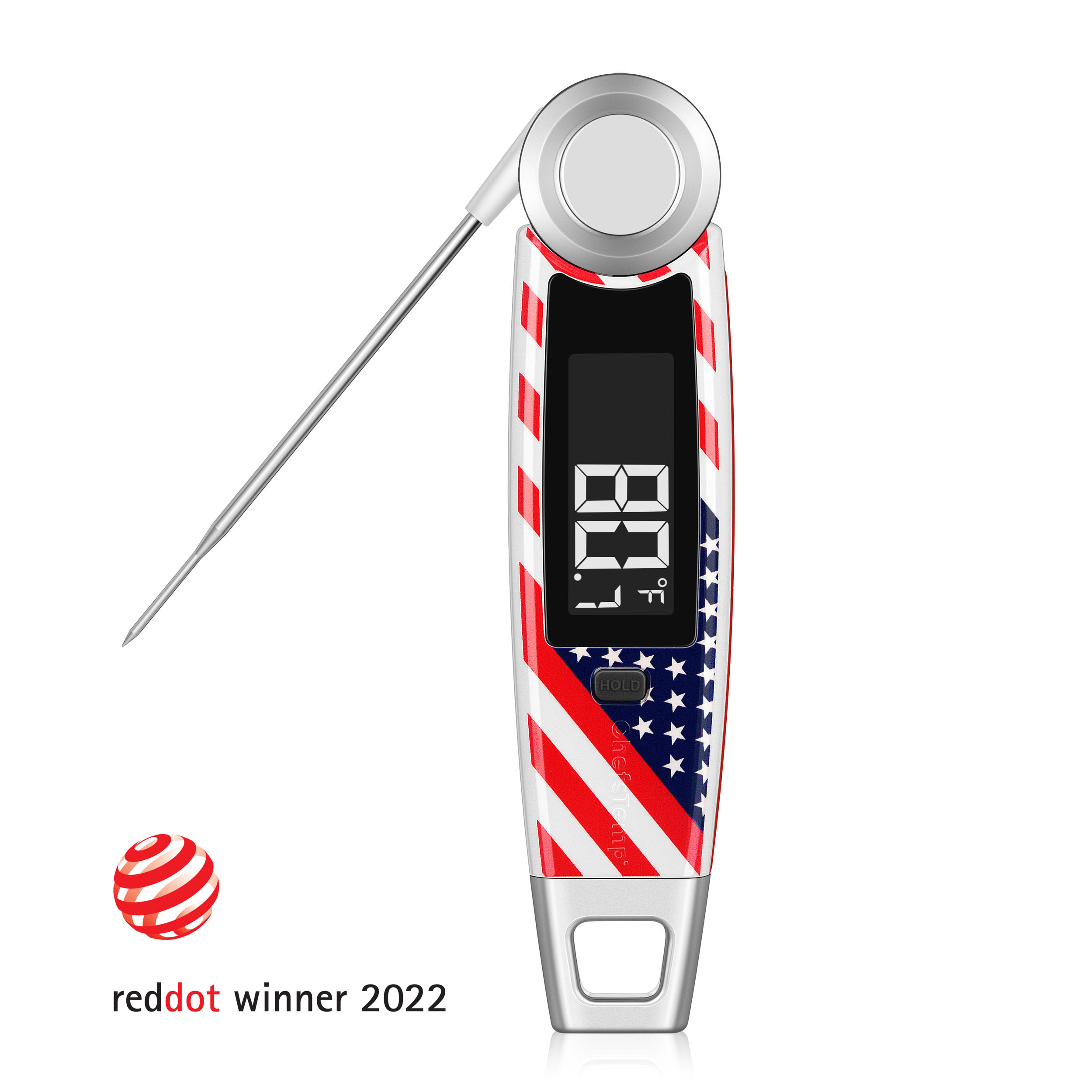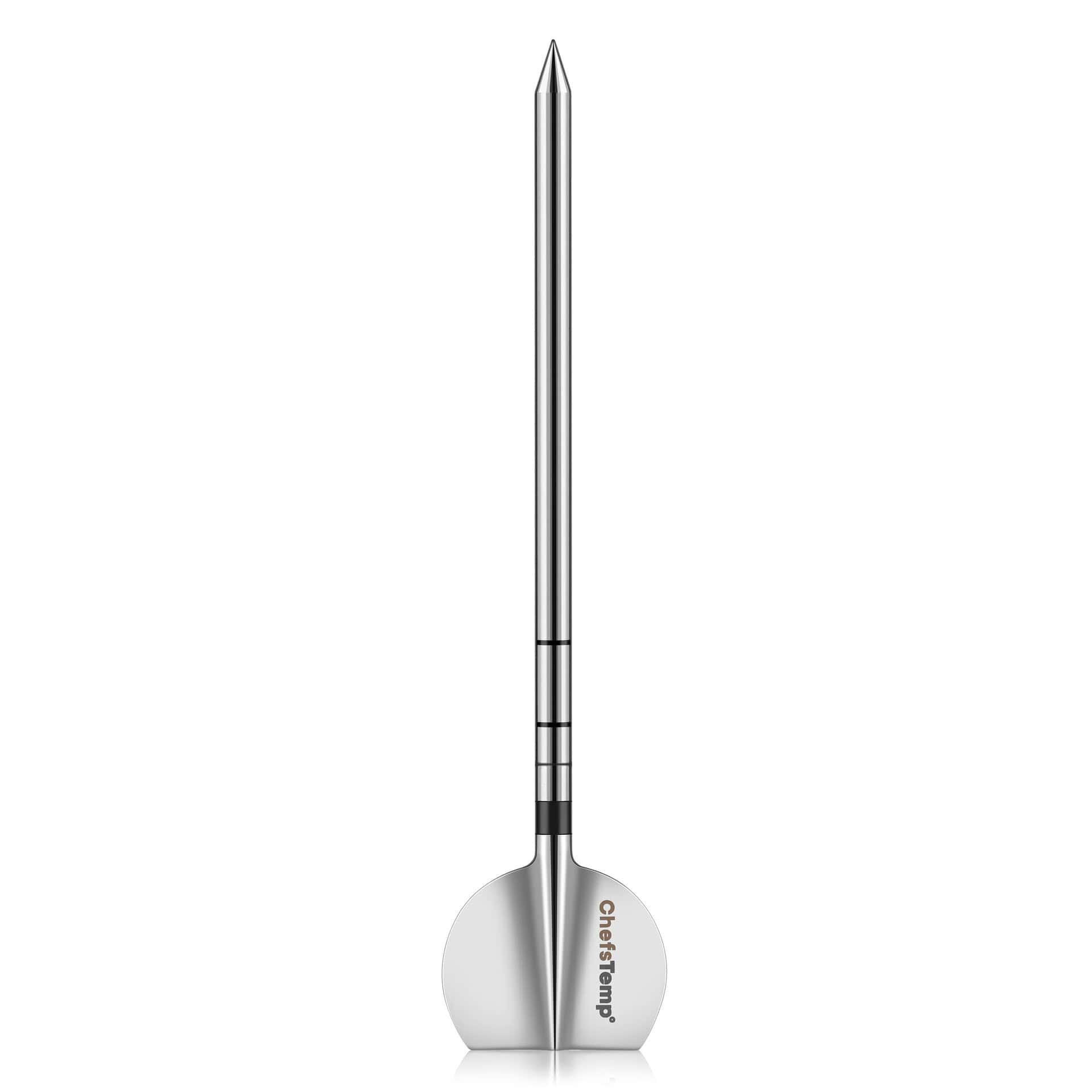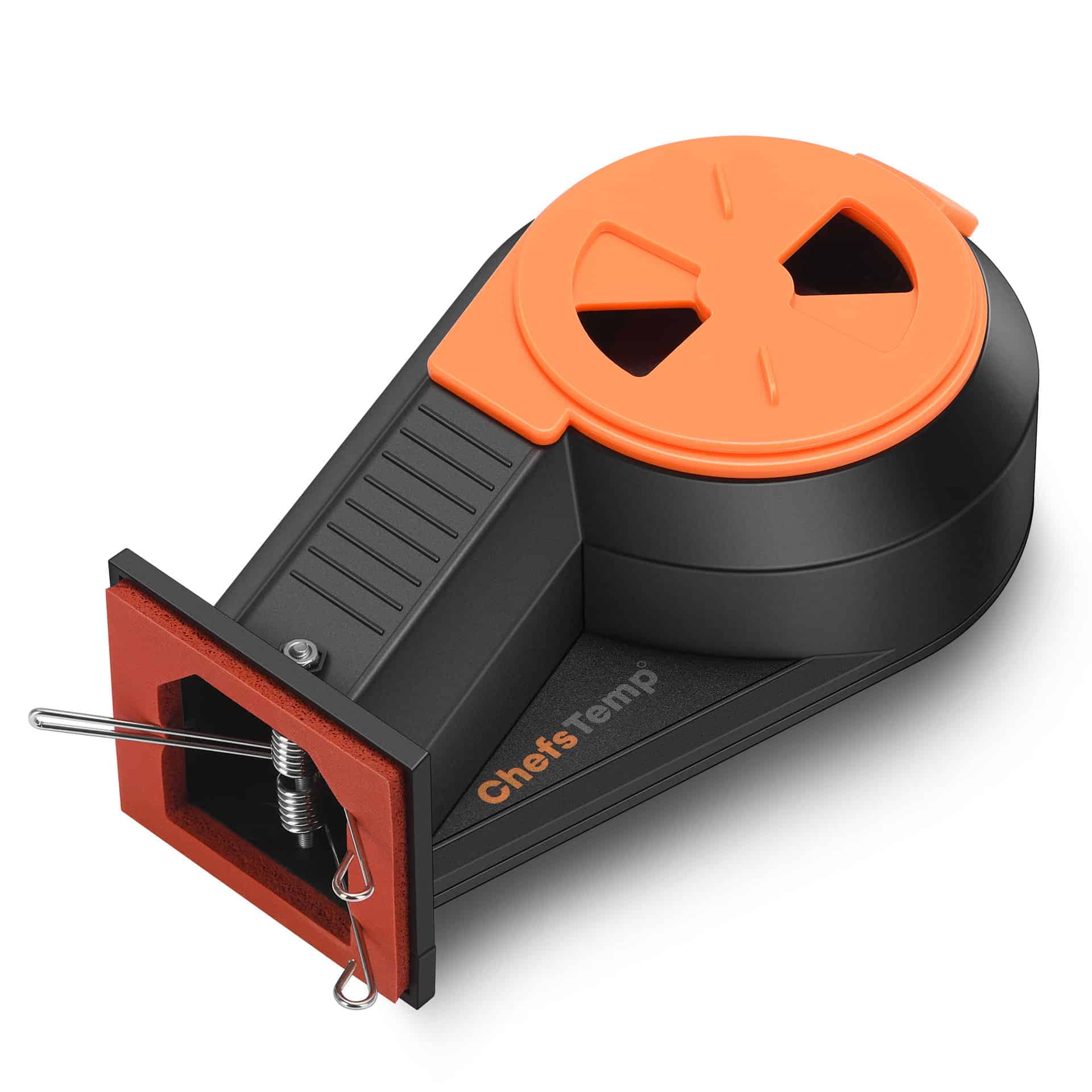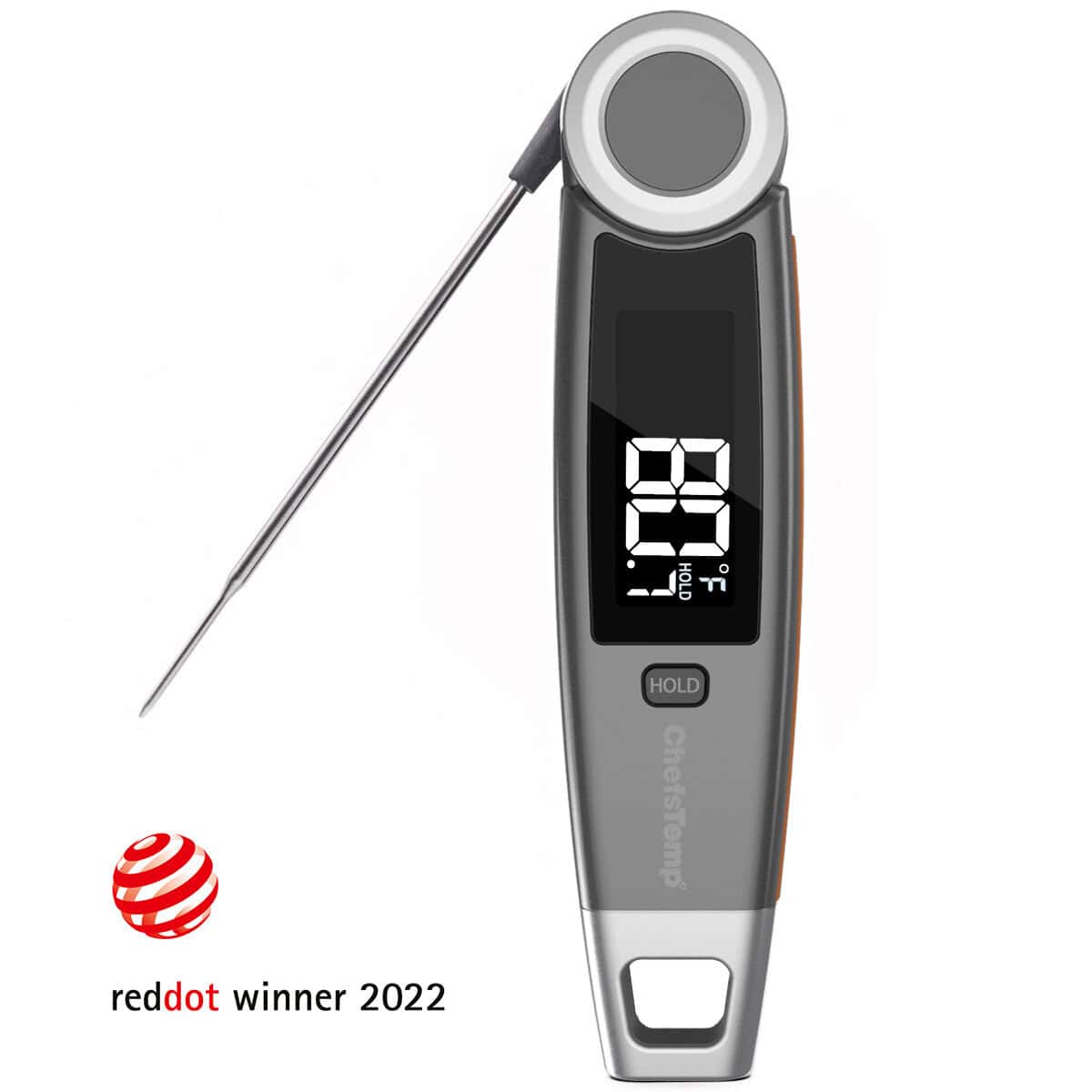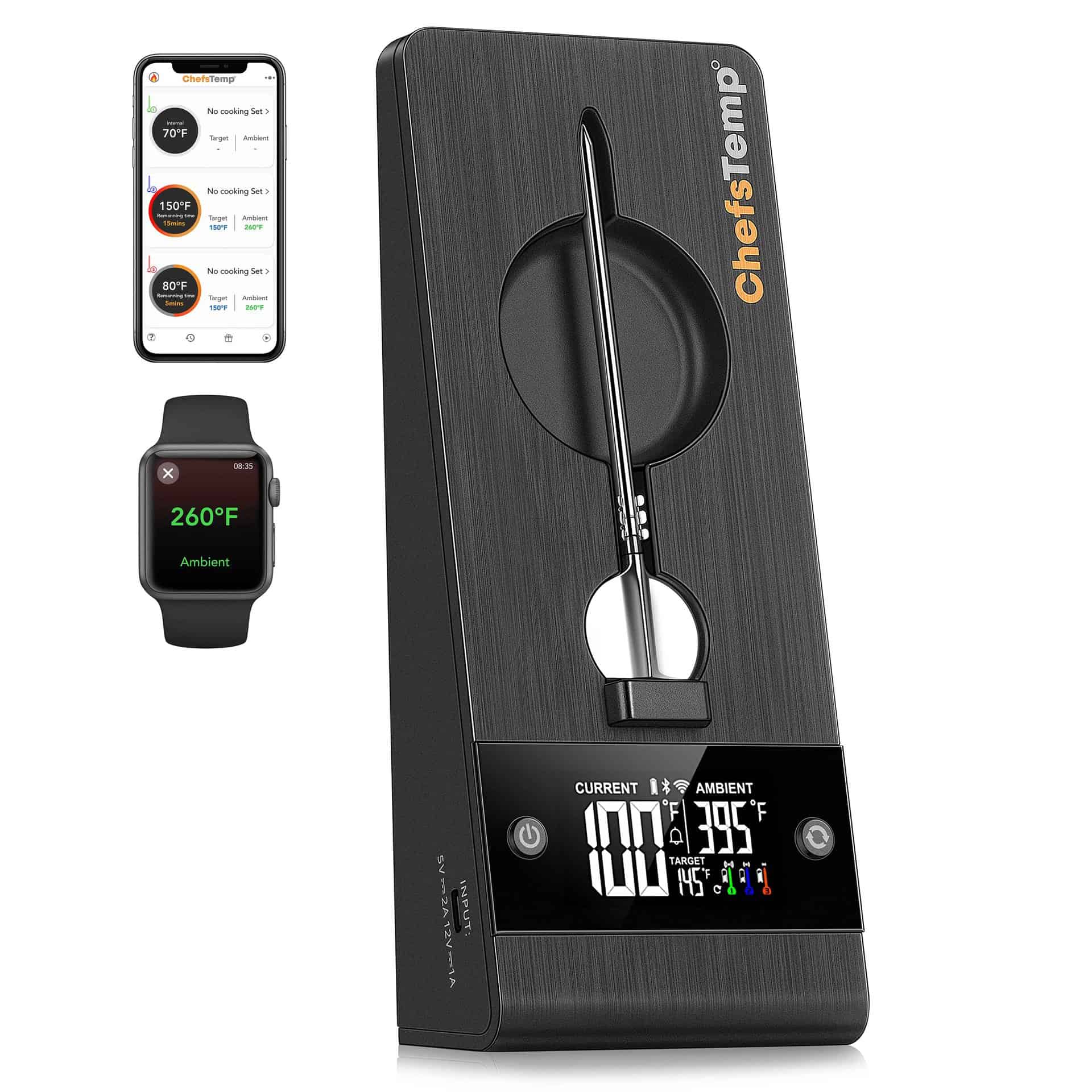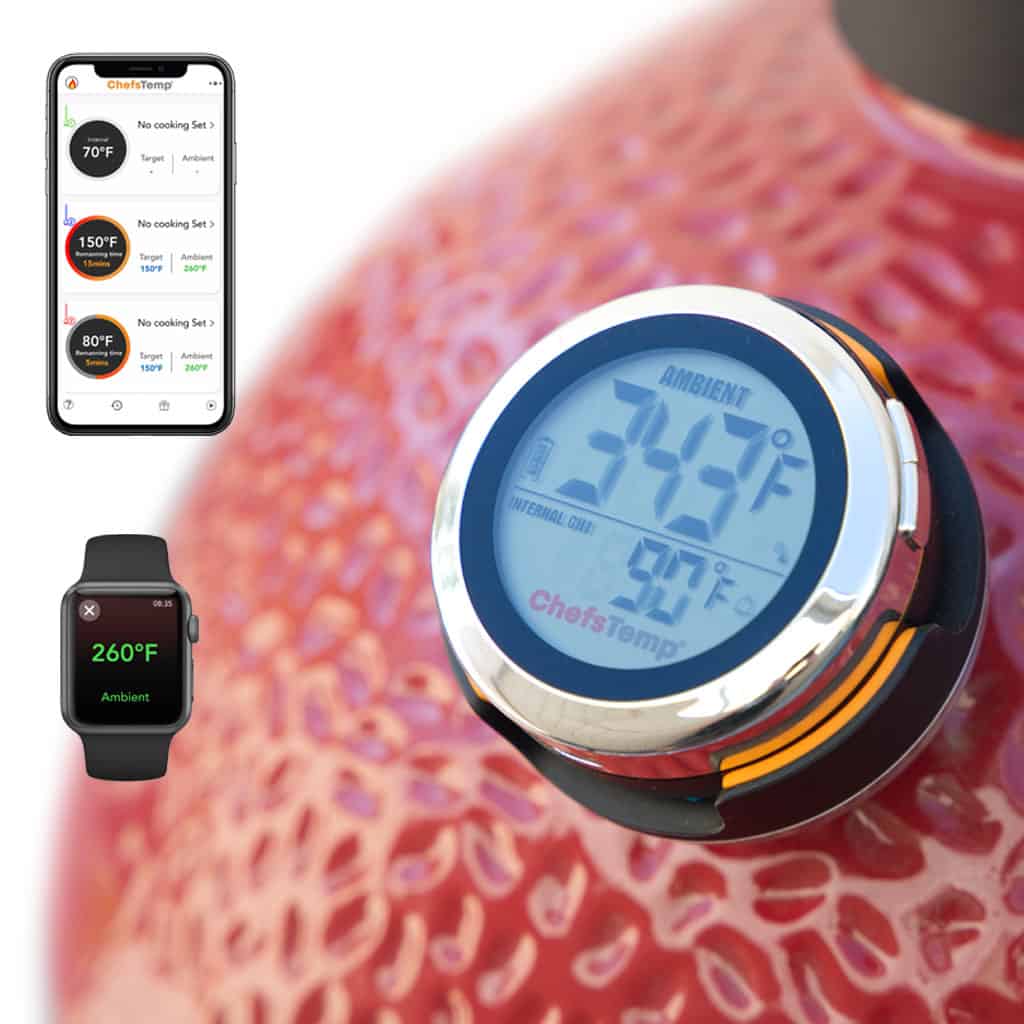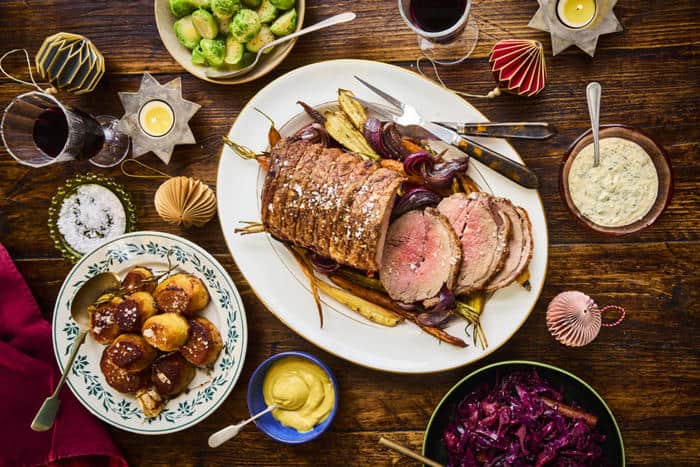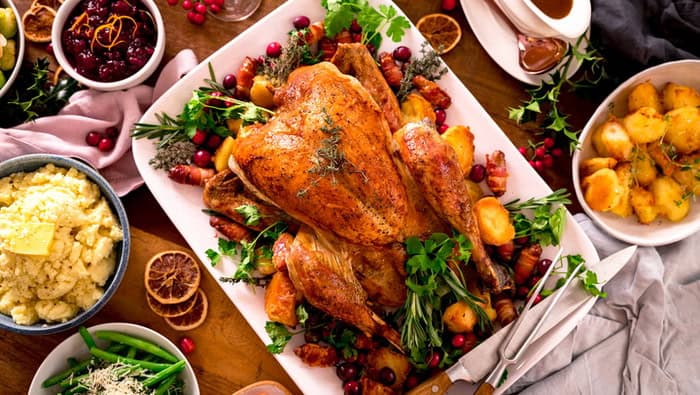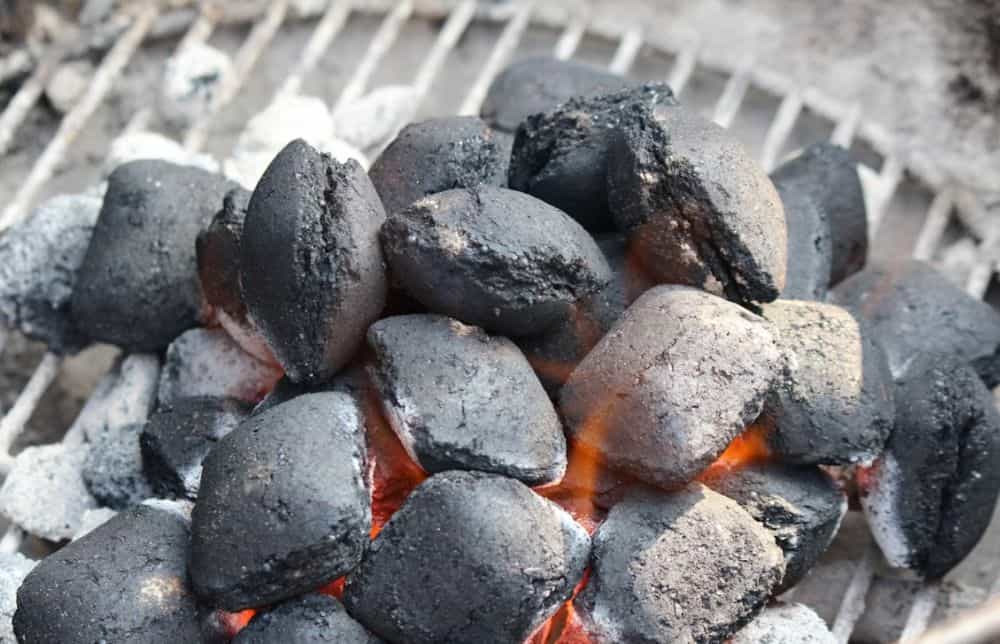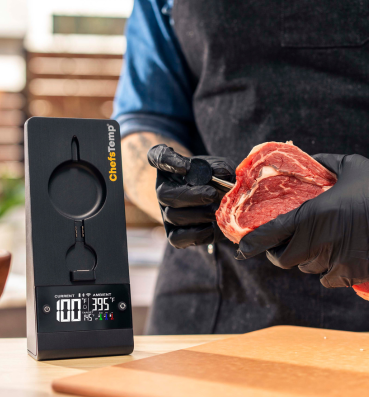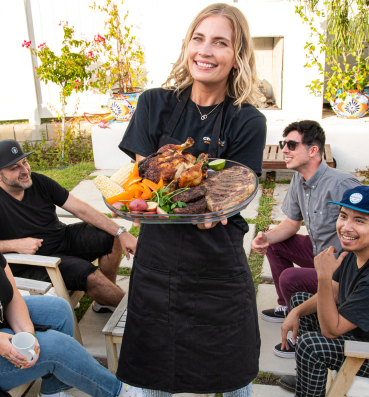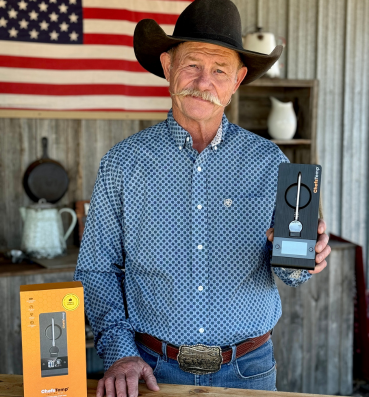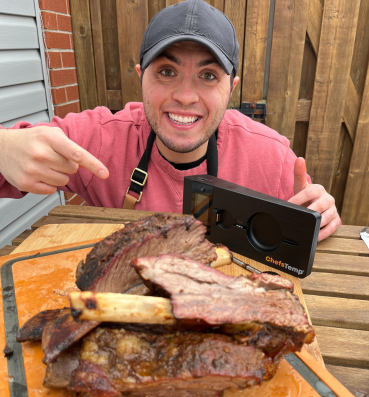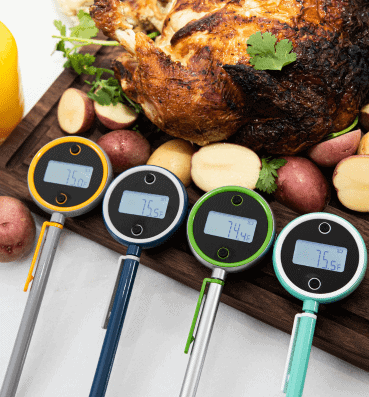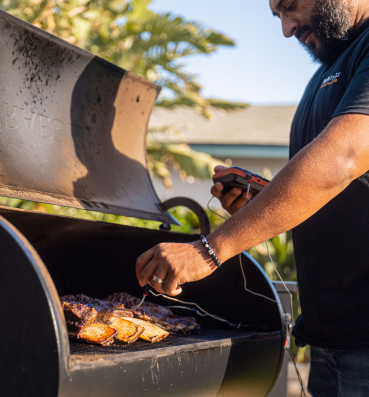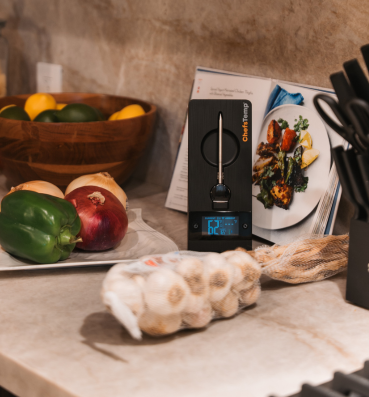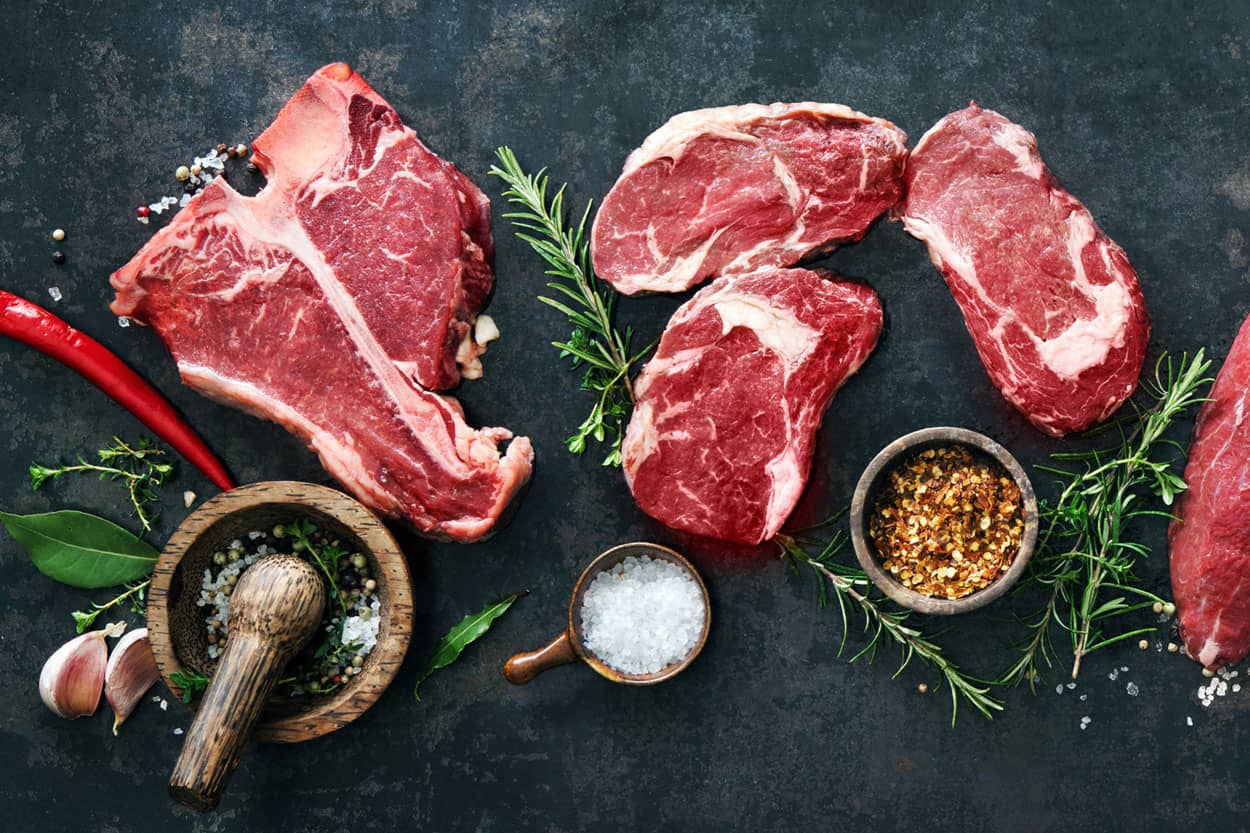
Kitchen Cooking Essentials
We’ve all done it. We’ve cut into a hunk of overcooked beef and chewed it ruthlessly, chasing it with a sip of water to encourage it down the throat. Who hasn’t cut into an undercooked steak and watched the blood ooze all over the plate? E. coli or Salmonella, anyone?
Worst of all is eating a flavorless steak.
It doesn’t have to be this way. Cooking steak requires paying attention to a few basic elements, including choosing your kitchen essentials, preparing the meat, and using temperature readings to monitor and help cook the perfect steak that’s safe to eat and delicious.
Table of Contents
Best Kitchen Essentials for Cooking Steak
The basics start with your choice of cooking utensils and kitchen tools. Two primary appliances are used for cooking the perfect steak, whether it’s prime or choice cut meat.
For red meats, you’re most likely going to use either a grill or the stovetop. Some red meats are slow-cooked in a crockpot or roasted in the oven, but we’re going to tackle the two more popular ways of crafting the perfect steak.
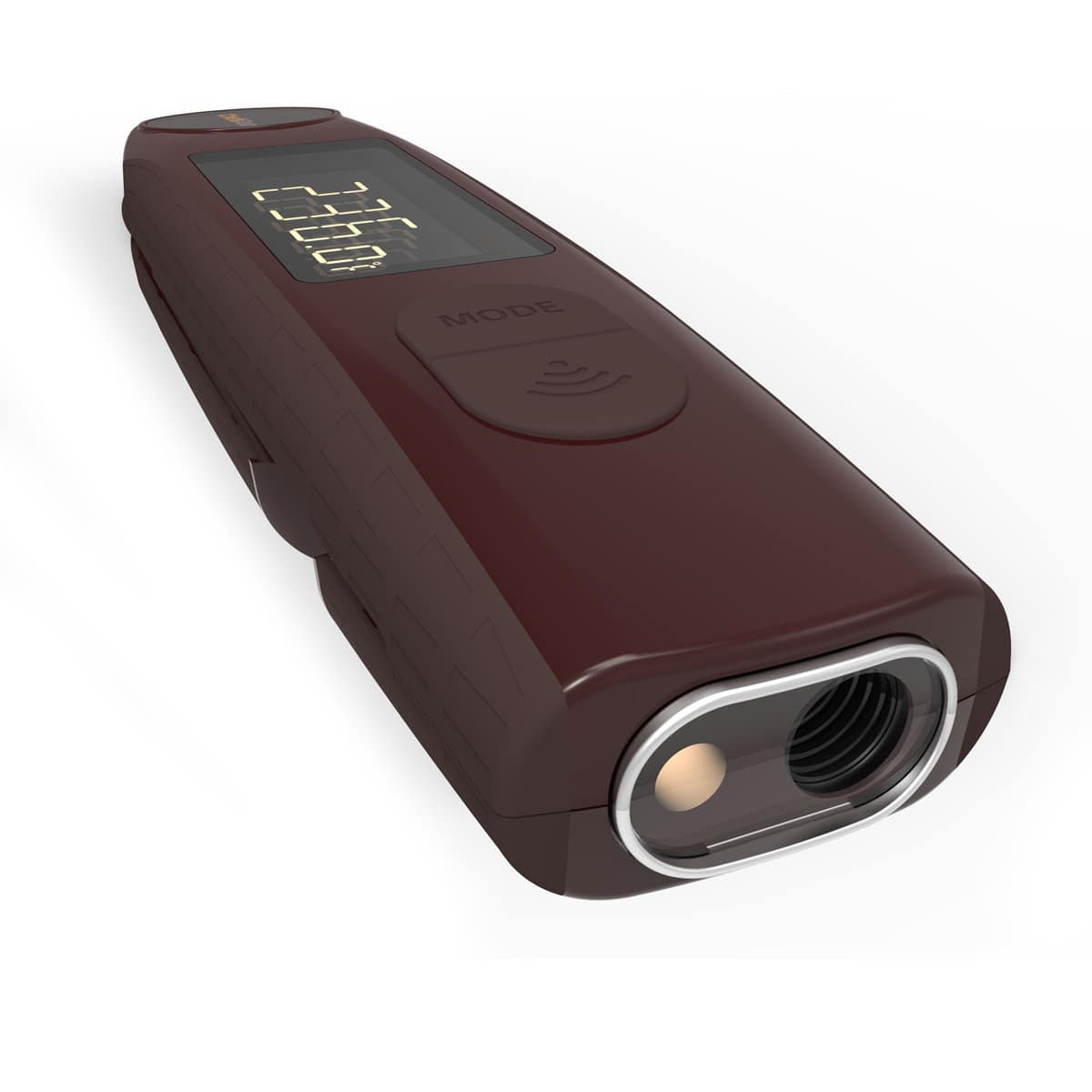
Grilling – Charcoal or Wood vs. Gas
There are pros and cons to using either of these grills. It all depends on your preferences. Charcoal and wood are more traditional grilling methods. It offers a smokey flavor, while gas grills add a sort of bacon flavor to the meats.
Steak drippings on a charcoal grill vaporize and infuse into the beef, producing intensely flavorful meats. You don’t get that on a gas grill because the drippings hit the slabs covering the fire, so it never goes back into the meat.
Gas grills preheat much faster and allow you to cook steak over a direct, open flame. Chefs like gas grills because it’s easier to control the temperature than on a charcoal grill. With charcoal and wood, the temperature changes regularly, so you must monitor it constantly. The gas grill heat stays constant.
Kitchen Essentials for Grilling
No matter which kind of grill you choose to use, the kitchen cooking essentials for grilling steak include:
- Long, sturdy tongs
- Metal skewers if you’re doing kabobs
- Cooling rack
- Chimney for charcoal/wood
- Grill brush
- Large carving board
- ChefsTemp infrared meat thermometer
The Stovetop
No grill? No problem. The best cuts to put on the stovetop are New York Strip, Ribeye, T-Bone, and sirloin. But this is just an opinion. You can try any of the cuts using the stovetop method. Use medium-high heat and preheat with oil and butter to get a flavorful, crispy outer layer. Be sure to get the oil and butter hot before adding the steak.
You want it to sizzle, sear, and smoke when you add the steak to the pan. You’ll know when to add the steak by looking at the color of the melted butter. As soon as it turns a tan/brown color, add your beef to sear.
Kitchen Cooking Essentials for Steak on the Stovetop
Here are some of the tools you’ll need to cook the perfect steak on your stovetop:
- Nonstick pan big enough to fit at least one steak. Don’t overcrowd the steaks! It’ll cause too much steam.
- Tongs or a spatula. Please don’t use a fork to flip, or it’ll let all the juices out.
- A meat thermometer for proper food safety and to ensure you don’t overcook it, either.
- Carving board
- Cooling rack
*Tip: Finish the steak on indirect heat, either in the oven or away from the open fire. Remove the steak from heat when the internal temperature is 5 to 10 degrees lower than where you want it. It’ll keep cooking.
Sauces, Marinades, and Rubs
It’s tough to decide whether to use a sauce, marinade, or seasoning rub on your steak. Many opt for the base spices only—salt, pepper, and garlic powder. However, others like to use a combination of two or all three to make their beef more exciting and flavorful.
The savory effects of these additions add to the taste and texture of your meat. Rubs, especially, give an extra crunchiness to the surface crust.
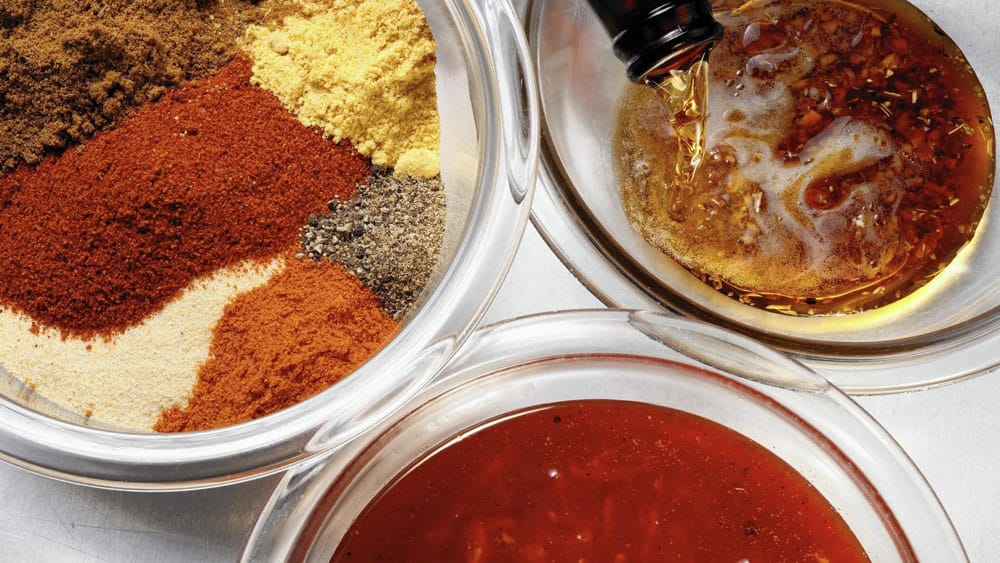
Marinades penetrate the meat deeply, so keep the beef in the liquid for 30 minutes per inch of thickness for optimal flavor. We wouldn’t recommend longer unless you want a strictly steamed piece of beef.
Sauces like gravies, horseradish, or Au Jus are superb additions to the meat after it’s been grilled, steamed, roasted, or fried on the stovetop.
Some of the best dried spices and herbs for steak (other than the base ones noted above) include:
- Basil
- Rosemary
- Sage
- Cayenne
- Cumin
- Curry
- Dry mustard
- Onion powder
*Tip: If you’re using a marinade and want your steak to have that crispy, flavorful outer layer, pat the beef dry before putting it on the grill or in the pan. Moisture causes it to steam more.
Cooking Steak to the Correct Temperature
Monitoring the temperature is the most critical part of cooking the perfect steak. Measuring tools like ChefsTemp thermometer makes it easy to know when your meat is at a safe temperature so you can place it on indirect heat for finishing.
Here’s a general guide for “doneness” based on chef standards, which are slightly different from USDA standards.
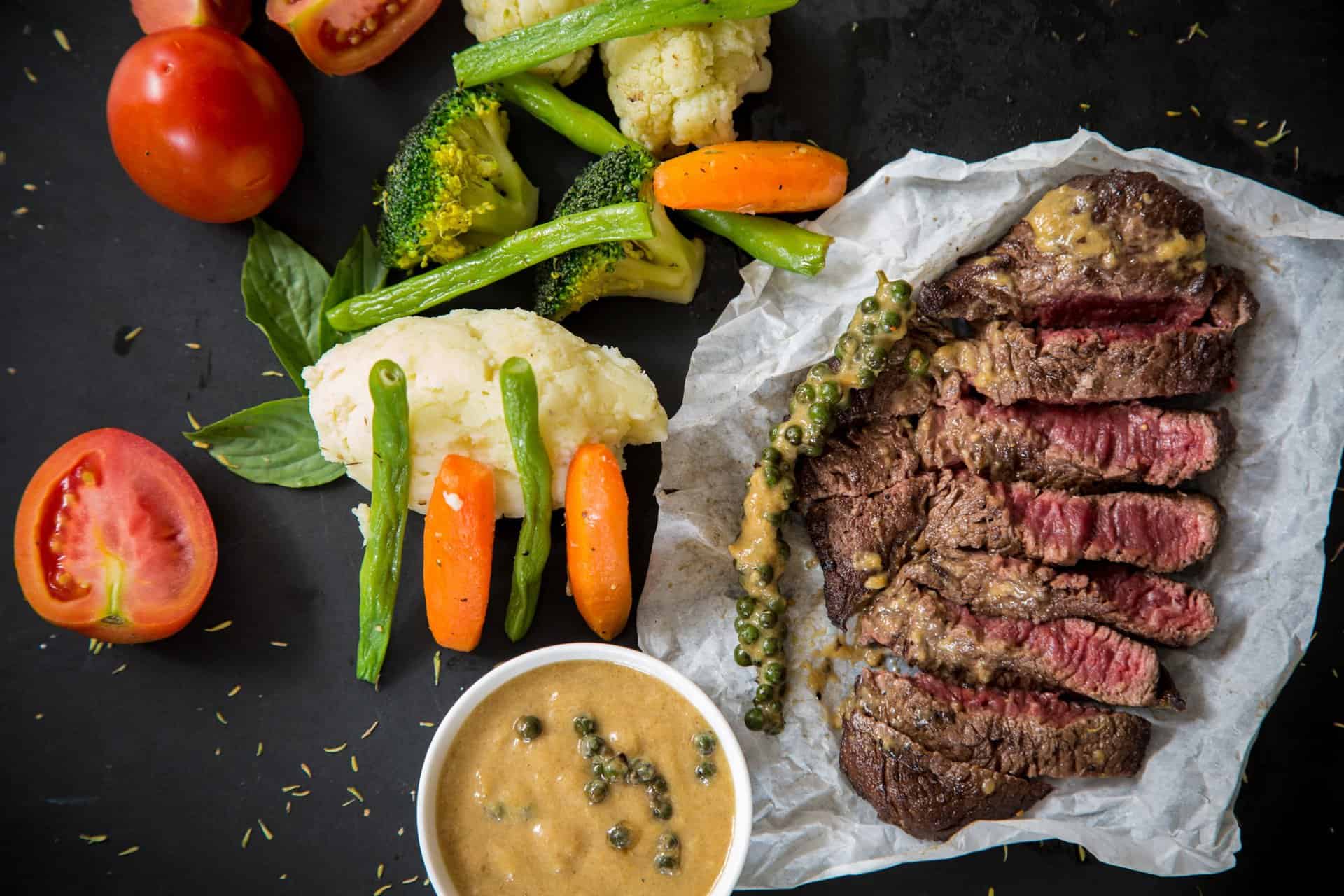
| DONENESS | CHEF STANDARD | USDA STANDARD |
|---|---|---|
| Rare | 120° – 125°F | Not provided |
| Medium Rare | 125° – 135°F | 145°F |
| Medium | 135° – 145°F | 160°F |
| Medium Well | 145° – 155°F | Not provided |
| Well Done | 155°F + | 170°F |
*Tip: Brown is better. A dark brown outer layer is best for steaks. That’s why most recipes call for you to sear the steak over high direct heat to get that initial crust. It adds a layer of incredible flavor and gives the steak a nice, crunchy texture.
Discover Other ChefsTemp Products
Discover more recipes and learn kitchen tricks by joining our cooking family on Facebook.
You may also like:
